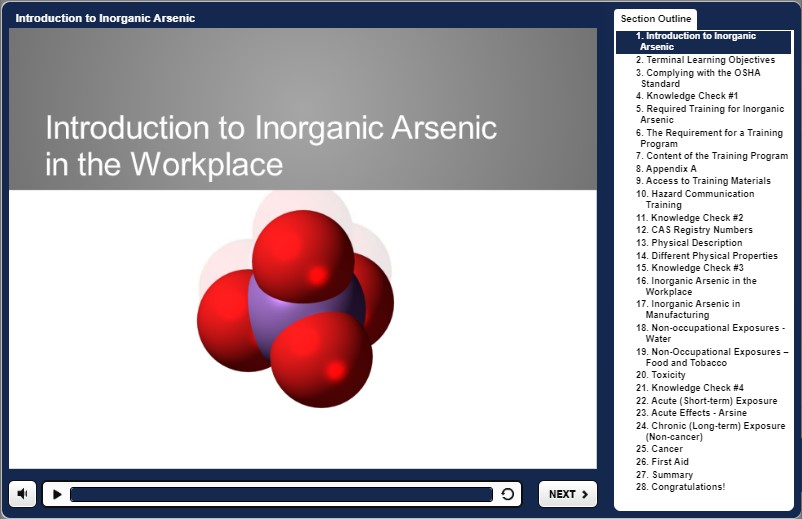Who Should Take This Course?
Our Online Inorganic Arsenic Awareness for General Industry and Construction course is for those who work in industries where they may be exposed to inorganic arsenic. The course provides a general awareness of the risks of exposure and the OSHA regulatory requirements to protect employees.
Inorganic arsenic is highly toxic and a carcinogen. It is often used in industries that process textiles, pigments, wood preservatives, metal adhesives, ammunition, glass, and paper. It’s also used as an alloying agent of lead, used in hide tanning process and used in the manufacture of semiconductors.
Inorganic arsenic exposure can occur during substance smelting and when arsenic or arsenicals are being transported. Exposure has been associated with lung, skin, bladder, and liver cancers. Inhalation of arsine, which is used in the semi-conductor industry, can be lethal.
For information on OSHA Safety training requirements or the Safety training courses we offer, visit our OSHA Safety Training page.







